Description
The Cherry Orchard by Antoine Chekhov In this play, the situation of Ms. Ranowski’s family is going bankrupt and declining. They have only one memorable cherry orchard in the world that should be auctioned along the way. Selling this garden is leaving behind and forgetting the memories of the past. The owner of the garden, Ranowski, despite his strong attachment to the garden, shows no resistance to selling the garden, but only suffers from his inability to forget past memories. He can not say goodbye to his past memories and this is his greatest suffering. Speaking of helplessness is the common point of all the characters in the story. Everyone is kind of helpless, everyone is against something.
At the beginning of the twentieth century, Russian society was on the verge of widespread change. The families of tsars and aristocrats were no longer popular, and young people opposed to them became more united every day to claim their rights. In 1905, widespread popular protests finally resulted in the Tsarist government becoming the constitutional government. At that time, the class system of Russian society changed. The aristocracy was on the verge of disintegration, the slaves without rations and wages were freed after the Treaty of 1860 and could prosper.
Also, a new generation of capitalists emerged who had no aristocratic ancestors and had accumulated capital through their own efforts. The difference between this generation of capitalists and the aristocracy of the past was that they were always attached to the future and progress in order to downplay their past. Unlike the new generation of capitalists, the aristocracy lived in its past and in remembrance of the glory of the previous days. In the play Cherry Orchard, Anton Chekhov portrays the Russian society of those years well.
A summary of the story of the Cherry Orchard
The Cherry Orchard is the life story of an aristocratic woman named Ranowski. He inherited a large cherry orchard from his ancestors. Since the Ranuski family’s only remaining capital is this garden, the cherry orchard will soon be sold by the bank in exchange for their debts. But Ms. Ranowski makes no effort to preserve her garden, although she considers it a family relic and reminiscent of her childhood memories. Ranowski and his brother see the garden as a sign of their identity, but at the same time they are neutral about losing it and waiting for fate. Finally, the cherry orchard …
sour cherry orchard; Mirror of Russian society before the 1905 revolution
The Cherry Orchard play does not have a complex story like other classics. The end of the story is easily predictable. The characters of the story also do not have special characteristics and powers. The story is empty of heroes and all are ordinary people who are familiar and understandable to the reader. There are no extraordinary events throughout the story and the daily lives of the characters are narrated from the beginning to the end of the story. But Chekhov’s art is that in four scenes he introduces all the characters in a way that the reader knows them well and understands their behaviors.
Cherry Orchard Characters; Symbols of different social classes
Ranowski is a symbol of the aristocratic class that is declining in Russian society in the early twentieth century. This generation, which predicts its collapse and decline, does not react to it and is proud of itself. Lupachin, on the other hand, symbolizes a new generation of non-aristocratic capitalists, and social change has enabled them to own property through their own efforts.
Lupakhin was the grandson of a slave who has now become a large landowner. Hence, he is always trying to forget his past and strive for his future. Another character in the book is Trofimov. He has completely opposite ideas to Lupachin and hates capitalist life and its order. He has no special attachment to anything and is waiting for destiny to see how his life will continue.
Chekhov, with his good characterization, was able to well predict the possible revolution in Russia from Trofimov’s language (the play was written in 1904 and the Russian Revolution takes place in 1905). This is where Chekhov’s complete knowledge of Russian society becomes clear, and it is not unreasonable that Chekhov’s works are considered the mirror of Russian society. Chekhov created the Cherry Orchard as a symbol of Russian society owned by the aristocracy and the Ranovskis, but now the likes of Lupakhin (new capitalists) have come to its trees with an ax (symbol of the identity and roots of the aristocracy) and finally the new owners. Will be cherry orchards.
Antoine Chekhov’s writing style
Chekhov had a different literary style than other Russian writers of his generation. While Russian writers tended to write “realist and realist” stories, Chekhov had a strong interest in the literary style of “Impressionism.” Impressionism was the dominant style of French writers at the time. In Impressionism, instead of expressing reality, the image of reality is expressed in the mind. The great Russian writer Maxim Korgi, who wrote with Chekhov in the same generation, was a fan of his and noticed a change in the way he wrote from realism to impressionism.
“Do you know what you are doing?” He wrote in a letter to Chekhov. You are killing realism … After every story you write, everything seems crude, even if it is not an important event. “It is as if you did not write with a pen, you wrote with a stick.” Chekhov’s Impressionism is also different from French Impressionism and has its own worldview. French Impressionism is hopeless and symbolic, while in Chekhov’s works there is little hope in the story and it does not negate life.
Chekhov; Master of short stories
Anton Chekhov, a prominent Russian writer and playwright, was born in 1860 in Taganrock. His family was from poor families working in an aristocratic estate. Chekhov began writing after entering medical school in 1880. During his university years, he published his writings under various pseudonyms. Most of his writing at the time of university was written for humorous and humorous magazines with the aim of earning money. In his final year at university, he published his first collection of short stories, The Tales of Melpamen.
After graduating, he began writing professionally. Chekhov first wrote under his own name, such as “Funeral” and “The Enemy,” published in the New Age newspaper, and did not use a pseudonym. He was so good at writing short stories that he has published nearly 700 short stories and is considered by many to be the greatest short story writer in history.
In his short stories, Chekhov refrained from elaborating and narrated most of people’s ordinary lives. His most important short stories include “From the Diary of a Maiden” and “The Adjective Turkey”. In addition to writing short stories, he was also very good at writing novels and plays. “Boring Stories” and “Duel” are among Chekhov’s novels.
Chekhov’s plays; From seagulls to Ivanov
Chekhov’s plays are also world famous and have been staged in different countries and in different languages. “Seagull” was his first successful play to be staged. His plays have comedic themes, and Chekhov calls them comedies, but Stanislavsky, the great Russian theater director and actor, performed them tragically.
In a letter to his wife, Chekhov complains: “Why do you constantly dramatize my play in posters and newspapers? Nemirovich Danchenko and Stalislavsky have found in my play something that bears absolutely no resemblance to what I have written, and I bet that none of them, for once, have read my play to the end with fascination. “Forgive me, but I assure you that this is the truth.” His other great plays include Ivanov and The Cherry Orchard.
Cherry Orchard play in Iran
The Cherry Orchard was Chekhov’s last play, written before his death in 1904. In Iran, great translators have translated the book into Persian. “Bozorg Alavi” and “Simin Daneshvar” translated the play into Persian in 1329, but Ms. Daneshvar published the book in the following years due to the simultaneous translation. “Behrouz Turani” and “Nahid Kashichi” are other translators of this work. The play “Cherry Orchard” has been staged many times in Iran. The most famous performance of this play took the stage at the opening of the Shahr Theater. The play was directed by “Arbi Avansian” and starred “Dariush Farhang”, “Mehdi Hashemi”, “Susan Taslimi” and “Parviz Pour Hosseini” in 1351.
We read in parts of the Cherry Orchard play
The first curtain
Scene: A room that is still called a children’s room. One of the doors of the room opens to Anya’s room. It’s the tail in the morning. The sun will blow soon. It is May. The cherry trees are in full bloom. The air in the garden is cold and the morning jelly is frozen. The windows of the room are closed. Doniasha enters with a candle and then Lupakhin holding a book.
Lupakhin: The train has arrived. thanks God . What time is it?
Doniasha: At about two o’clock (the candle dies.) The air is fully lit.
Lupakhin: How many hours was the train delayed? At least two hours. (Yawns and relaxes.) Wow, I’m a sweetheart! What a stupid thing I did. I especially came here to go to their welcome station and slept like a demon … I was sitting on a chair when I fell asleep … how disgusting. You should have woken me up.
The Cherry Orchard is a work by Anton Chekhov, a seemingly simple but deeply profound play. Full of ordinary people. Away from any kind of hero or far-fetched event. We only see the lives of people who passively surrender to their destiny and do not have the means to fight what they do not want.
On the back cover of the book is:
The Cherry Orchard is Chekhov’s last play, written in 1903 and first staged at the Moscow Art Theater in January 1904. The characters are the same people we encounter in everyday life. None of them have a prominent role, they do not fight, they do not fail, they do not even defend themselves, and they do not solve the problems that are in front of them.
They wait for the accident and bear their fate and bear their fate with patience. Chekhov’s Impressionism in the last analysis does not negate life, but is full of hope for the future. In the Cherry Orchard, garden sales are a sign of farewell to the past, a declining past. And the ax that eats the stumps of the trees is the ax that overturns the old life and the declining aristocracy.
Sentences from the text of the book Cherry Orchard
If they prescribe multiple treatments for some pain, it is a sign that the pain is incurable. I think. I break my brain, I remember a thousand tactics, really thousands! But basically all this means that I do not remember a single solution. (Cherry Orchard Book – Page 38)
If you do not speak and remain silent, you will be more comfortable and happy. (Cherry Orchard Book – Page 40)
Sometimes I want to talk. But I have no one to grieve with, I have no one. (Cherry Orchard Book – Page 46)
I’m a book reader. I have read many interesting books. But I do not really understand what I want. Should I survive or ruin my brain? But in any case, I always have a shell with me. here it is! (Cherry Orchard Book – Page 47)
There is no one to say two words to. I am alone. Alone, I have no one. Who am I and what do I do? Nobody knows. (Cherry Orchard Book – Page 47)
In my opinion, if a girl falls in love, she has already recited the Fateha of morality. (Cherry Orchard Book – Page 48)
1- Introducing the book The Cherry Orchard on YouTube
2- Introducing the book The Cherry Orchard in Aparat




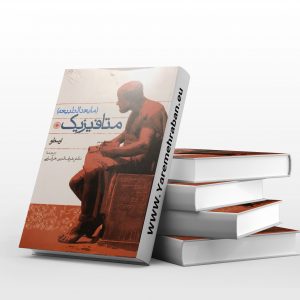
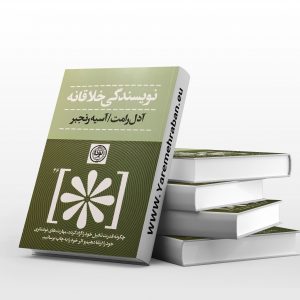



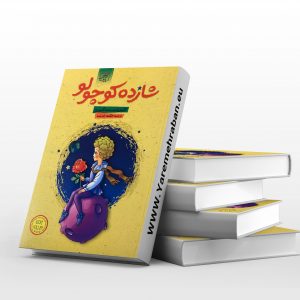

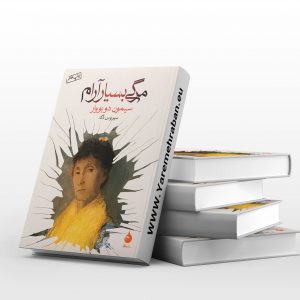

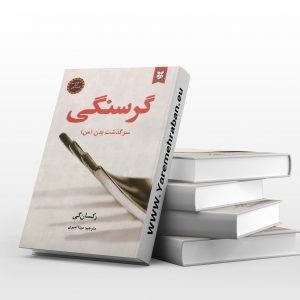
Reviews
There are no reviews yet.